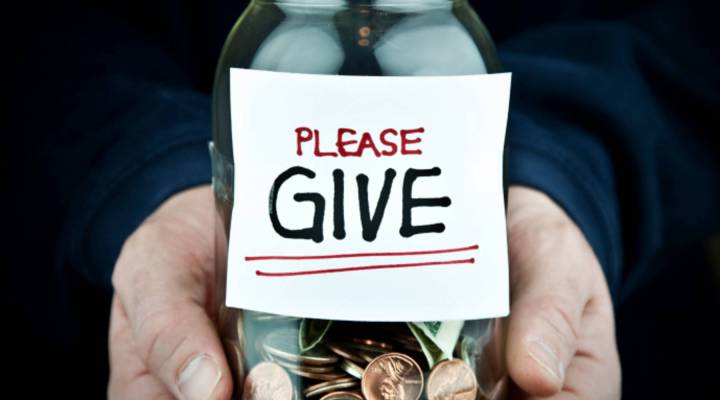
The worst charities: Get information before you make a donation
The worst charities: Get information before you make a donation

Americans give generously. We give more to charity per capita than any other developed nation; more than $200 billion in 2011. But all that money may not be going where we think. The Tampa Bay Times and The Center for Investigative Reporting have released a list of “America’s Worst Charities,” 50 organizations that raised billions of dollars, but gave hardly any of it to the people who need it. In some cases, these charities gave no money at all. Instead, much of the money went to paying fundraising firms — those people who bombard us with calls and direct mail. Kendall Taggart is a data reporter at the Center for Investigative Reporting.
“I think for a lot of these groups that are using outside fundraisers, it’s an easy way to cover their own salaries and there’s very little regulation to making sure that they follow through on the promises that they’ve made to donors,” says Taggart.
| Crowdfunding is playing a larger role in disaster relief |
| Hurricane Harvey flooding dredges up scams |
Taggart says these charities provide help to the causes they are supposed to support with what’s called “gifts in kind” — things like medical supplies that they ship overseas. The problem is that there’s no way to verify the value of those goods, so they can be used to inflate a charity’s revenue on the books and what it looks like they’re doing in terms of programs.
“The top of our list is an organization called Kid’s Wish Network. They operate out of a metal warehouse in Holiday, Fla. Over the past decade they’ve raised millions of dollars. Of that, about 80 percent — $110 million — has gone to professional solicitors, $4.8 million has gone to the charity’s founder and his consulting firm, and only $0.03 of every $1 that they’ve raised has actually spent directly on helping kids,” says Taggart. “Most of the causes are popular causes that appeal to donors and may sound like a more well-known group.”
To make sure that you’re sending your money to good places, Taggart says there are many resources to research cahrities online.
The top 10 worst U.S. charities:
See the full list
Want to evaluate a charity you want to donate to? Check out these helpful websites:
Charity Navigator
CharityWatch
GiveWell
“Some basic steps that people can take if they get a phone call at home is to find out exactly who’s calling, where their donation will go, what they’ll do with your money and, if you get a call, know that there’s a cost and they — if you ask — need to tell you what that cost is, whether the telemarketer is going to take $0.80 or $0.90 or that kind of thing,” says Taggart.
She says you should ask the question: “How much of my donation is going to go to the charity versus your professional firm?” One last piece of advice: some watchdog groups say that if you receive a phone call asking for a donation, you should hang up; the best way to make sure that your money is going where you want it to go is to give directly.
There’s a lot happening in the world. Through it all, Marketplace is here for you.
You rely on Marketplace to break down the world’s events and tell you how it affects you in a fact-based, approachable way. We rely on your financial support to keep making that possible.
Your donation today powers the independent journalism that you rely on. For just $5/month, you can help sustain Marketplace so we can keep reporting on the things that matter to you.


















